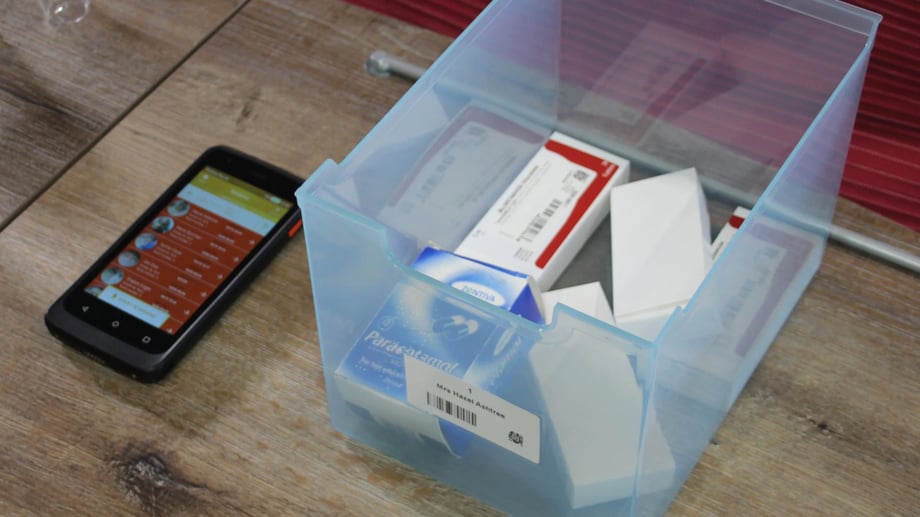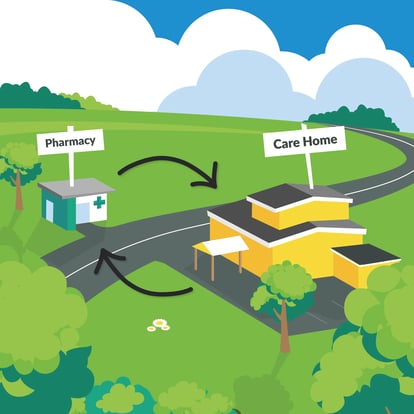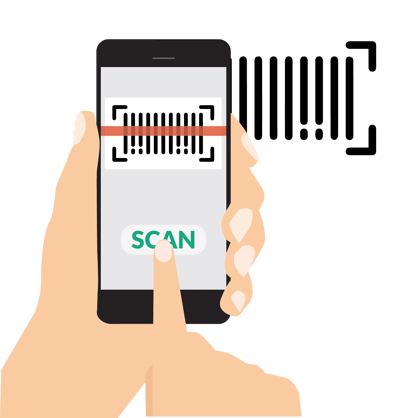Martin Wall, Customer Experience Manager for ATLAS eMAR, discusses the ways in which ATLAS eMAR can help achieve greater operational efficiency through time and cost savings, as well as safer and more streamlined medications management

If you’re a care home member of staff, care home manager or if you’re the regional manager of a group of care homes, you will probably have come across certain issues that have historically been very common in care homes. Whether it’s a failure to carry over last months’ medication leading to stock discrepancies and wastage, pharmacies sending out medications that have already been stopped or changed, a medication round’s window of time not being followed properly or any other common error that can happen, what do they all have in common? It all comes back to the question of efficiency. As a care home manager, for example, it’s not always possible to legislate for any mistakes that are made outside of the care home, but by investing in an eMAR system, you can ensure that everything over which you do have control runs as efficiently and as well as possible.
Efficiency underpins everything else that matters when it comes to medication management; without maintaining high levels of operational efficiency in care homes, like those that are only achievable with an eMAR system, there aren’t the correct processes in place to ensure complete transparency and communication for the safe distribution of medicines to make sure the right person is getting the right dose at the right time, or effective reduction of drug waste, or the ability to review medicines to the highest standard, or to gather feedback on service delivery, staff performance, or anything else for that matter.
Assuring that the care home is operating efficiently makes everything else possible, and the best way to achieve the highest standard of operational efficiency is by investing in an eMAR system like ATLAS eMAR.
How ATLAS eMAR can help you achieve outstanding operational efficiency
Have you ever considered the fact that doctors’ records are on a computer, and that prescriptions are almost always electronic these days, or the dispensing, ordering and general management of drugs in pharmacies is all done on computers, and after all this, with practically everything being done with computers, care homes are then using paper to administer and track these medications?
Correcting this imbalance of technology and all the issues that are caused by it is one of the key missions for ATLAS eMAR, because when care homes have to rely on a system as inherently unreliable, inefficient, and quite frankly as dangerous as paper MAR charts, you end up in a situation where a study by Cardiff University commissioned by the Welsh government was able to identify 23 different error types that exist in the care homes, and you get to a situation where such a vital service to some of the most vulnerable people in society is not operating at anywhere near the level it should be, as was stated in the CHUMS report, which also concluded that of the mistakes made in care home’s use of medicines, about 30% were made by pharmacists, 30% by doctors and 30% by care homes.
Worse still, even though the CHUMS report was commissioned a decade ago, many of the issues raised within it are still just as prescient today. Ultimately, in 10 years, nothing really has changed, but ATLAS eMAR is one of the very few companies that are trying to do something about it, and one of the few companies that think that things can, and should, be much better than they have been. Below are just some examples of the ways in which we are transforming the process of medications management to achieve the levels of operational efficiency that care home residents and staff deserve.
ATLAS eMAR's Interventions (Oct 2022 – Oct 2023)
Interval check failed (Items containing Paracetamol)
Total interventions – 1,580,533
Patients affected – 29,054
Inactive medication scanned
Total Interventions – 31,871
Patients affected – 6,800
Medication does not belong to patient
Total interventions – 160,778
Patients affected – 24,628
Medication attempted to early
Total interventions 1,135,139
Total patients 47,834
Other interventions
Invalid barcode scanned – 419,185
Patient absent (scanned med) – 102
Pharmacy Integration
It sounds like a straightforward question, but have you ever taken a step back and really thought about the steps that have to be taken by all the links in the chain that make up the efficient administration of medications? Working such long and tough hours as care staff do, it can be hard to find the time to consider what happens at pharmacies before the medication even gets to the care home.
Traditionally, the pharmacy will receive prescriptions from the doctor and then enter the details of that prescription before printing out the dispensing labels that they then attach to the relevant boxes of medication. Such procedures that pharmacists must follow leaves room for human error to occur, and despite the very best of efforts, it’s inevitable that mistakes are going to happen, for example when labels are placed on the wrong boxes because the label only stated that the medication was paracetamol, not exactly how many paracetamol were in the box; if you’ve ever received wrongly labelled medication, this is most likely the reason why.
But knowing about the mistake after the fact doesn’t do much good, so how can efficiency and relevant safeguarding at the start of the process of medication administration, i.e., at the pharmacy, be maintained so that the errors don’t magnify the further you get down the chain? How can you be sure that mistakes aren’t happening before you’re even involved? If the lines of communication aren’t open between a care home and the pharmacy, if the data isn’t being captured in real-time, how can care homes safeguard against mistakes that start with something as simple as a labelling error, but snowball into something much worse?
ATLAS eMAR’s full pharmacy integration means the pharmacy software that runs alongside ATLAS’s system ensures that once the prescription details are entered by your pharmacist, they will then print out a picking list, take the medication from their shelves and bring it to their dispensing area, after which point, they will scan the manufacturer’s barcode label. If they have picked an item that is needed by one of your residents, only at this point will they be able to print the dispensing label. If they have picked an incorrect item, whether it’s the wrong medication or the wrong form, the dispensing label will not be printed.
picked an item that is needed by one of your residents, only at this point will they be able to print the dispensing label. If they have picked an incorrect item, whether it’s the wrong medication or the wrong form, the dispensing label will not be printed.
With this, you can be confident that before the medication even gets to your care home, the correct label will be on the correct package. And to ensure that there are no discrepancies in medications, once the home has finished dispensing medication, your pharmacist is given a list of any items that have been prescribed but have not been labelled – ensuring that no details go unchecked.
Stopping errors before they happen is one of the central tenets of ensuring safety through operational efficiency, but what about pivots that need to be made, for example, in the middle of the month?
You might have been in the situation where the doctor, in the middle of the month, feels it necessary to change the medications of a resident, whether the dosage, the timing or even the type of medication itself. Using a paper system, the time needed to ensure that the old drugs are out and the new comes come in means that things are delayed by at least a few days – to the point where you might, unbeknownst to you, be administering medications that have been stopped, or administering too much or not enough. Usually, for pharmacists, if a care home stops a medication because a doctor tells them to, the prescription for the monthly medication is already on the pharmacy system and it gets dispensed. This can not only lead to errors in administration, but it leads to huge amounts of waste.
With ATLAS eMAR, this problem is eliminated because as soon as you enter the drug change at the care home, whatever that change might be, the pharmacy services are immediately updated with the same information, meaning that the change should happen instantaneously.
Because of the two-way communication between ATLAS’ handheld device and the pharmacy computers, if you stop the medication in the care home, it then stops the pharmacy from dispensing it. By working in partnership with ATLAS eMAR, that 30% error rate made by pharmacists mentioned earlier in the CHUMS report is brought down to less than 1%.
These instances alone speak to the vastly improved communications between a care home and pharmacy that not only virtually eliminate medication errors before they happen but helps to foster a much better relationship between the two links in the chain of medication management and efficiency.
If you’re pharmacy doesn’t use ATLAS eMAR, it is understandable to feel some apprehension about changing pharmacies, but with ATLAS eMAR’s pharmacy integration, you can ensure that best practice isn’t only followed within your care home, but it will also be followed at your new pharmacy too.
Click here to read more about ATLAS Pharmacy
Barcode safety, stock levels and medication ordering
So far we’ve covered what happens in your pharmacy before the medication even gets to you. We’ve covered how ATLAS safeguards against any possible types of error on the way to the care home, but what about once it’s in the hands of staff?
The biggest challenge for care home staff is having too many things to do and not enough time to do them in; traditionally, the way that medications would be booked in using paper MAR charts meant that it could take multiple members of staff several hours, if not days, to book monthly medications in, which leads to a huge amount of wasted time and energy. But with our barcode scanning feature, which is completely unique to ATLAS eMAR, care staff can pick up a packet of medications and scan the barcode which allows for instantaneous booking in of medications, saving a significant amount of time for staff that is then freed up to spend time with residents. This goes further than any other eMAR system because we won’t just tell you what is in the box, it will also add the stock to your running stock count for you, which means no more forgetting to carry forward stock.
It gives nurses, for example, the time back that they would have had to spend doing more administrative tasks that can easily be handled by carers – rather than spending most of their time sifting through mountains of paperwork or walking up and down the corridors with a trolly of medications, they can spend the time making nurse-led decisions and focusing on more clinical tasks that require a nurse’s expertise and experience.
From your care home’s point of view, having ATLAS eMAR is the equivalent of having an extra member of staff because in making the process of medications management so much easier, safer and more organised, you won’t need to pay for that extra nurse that just administers medications. In fact, having ATLAS for one month will save you what you pay for a nurse in a year.
ATLAS eMAR also handles stock control and ordering seamlessly. You might have found yourself in the situation where your care home has been picked up or even failed inspections because of a miscalculation in carrying over stock from the previous month before new stock was booked in, but as mentioned earlier this issue is a thing of the past because with ATLAS eMAR’s unique barcode scanning feature, this calculation is completely automated, which ensures greater control over stocks and because of the multi-tiered flagging system used by ATLAS eMAR, care staff will get warnings that state when a medication has only nine days left of supply, which avoids discrepancies in stock levels and ordering of medications.
You might also have found yourself in a situation where because paper MAR charts are almost always out of date, you aren’t aware of the latest medication changes or needs. This can mean that care homes have to ask pharmacies to loan out medications to ensure they don’t run out. However, with ATLAS eMAR, there are multiple warnings that mean you won’t ever be in a situation where you don’t know you’re about to run out of stock.
Not only can you ensure greater efficiency in maintaining medication stocks, but you will be able to maintain far greater records of exactly what medications are being used and when. For example, if you’ve been struggling to account for medications that can’t be quantified in the use of blister packs, such as creams, inhalers or eye drops, you’ll know what a laborious process it is to physically find the medication type on the paper MAR chart to find out when and how much needs to be given. You might have been in a situation where by the end of the month, the paper chart you’re using is full of hand-written annotations and notes, as well as ring-binders being put in the wrong places. With ATLAS eMAR, however, the items you book in will be colour-coded based on the urgency of use, so you can know instantly what needs to be administered and when.
With our visual, colour-coded system, it will take no longer to dispense medications (it might even take less time) but it will vastly improve the safety and effectiveness of your medication rounds because the colour-coded alert system enforces compliance and efficiency because all flagging actions are logged in the system which helps to avoid situations where, for example, you might be giving someone paracetamol less than four hours apart if your medication rounds take one or two hours.

Ultimately, efficiency means knowing in real-time exactly what is happening in the care home; with traditional paper charts, there is nothing to stop someone from incorrectly administering medications, whether it’s the wrong dose or the wrong time or even the wrong person. But with ATLAS eMAR’s innovative system of alerts, real-time data sharing and barcode scanning, these types of errors are drastically reduced, and unlike with a paper MAR chart, if they do happen, you know about it.
Of course, at the same time, it’s understandable for some care homes to feel a bit apprehensive about embracing new technologies because they believe that an overreliance on automation might lead to the de-skilling of staff. We understand that, but it’s important to remember that we don’t want to de-skill your staff. Rather, we want to support them to make the right decisions, to provide a far higher level of safeguarding against medication errors, promote a learning culture of constant feedback and improvement and ultimately to make better use of the time they get back from not having to perform mundane and administrative tasks so they can have a greater impact for those they care for.
After all, one of the reasons ATLAS eMAR operates the way it does is because it was built based on what the CSCI, now CQC, wanted from care homes in terms of performance and evidence.
ATLAS Central and Group Reporting
As a care home manager, or perhaps a compliance officer or regional manager, if you’ve ever had concerns as to whether a member of staff is following your medications policy, the reports available to you on ATLAS Central will show you whether they are maintaining the appropriate standards because of the accuracy and abundance of information available.
When using a paper-based MAR chart system, it’s all too easy for medication errors or stock errors to go unreported, or if staff training is required or a certain care home in a larger group needs more attention than others.
But with ATLAS Central, managers will receive daily reports either on the system or straight through to their inbox which brings together all the information they need to know about how the care home is performing. Everything that is inputted on the ATLAS handset is automatically synchronised with ATLAS Central and the pharmacy, ensuring a constant flow of information all in real-time. For example, the information will report on stock levels – what is close to running out and what needs to be ordered, it will report on if medications were missed, it will report on if they were given too soon, or any other type of scenario you have found yourself in before, for that matter.
This empowers managers to not have to spend their time going through the records and looking for errors because those errors will almost certainly not be there, as some care homes often go months at a time with ATLAS before an item is missed. And if errors do still occur, then ATLAS Central gives manager’s a targeted, focused view of the problem so that they can act immediately. And of course, all this information, which is pulled through in real-time, goes a long way toward the evidencing of care for CQC inspections.
Did you know?
ATLAS eMAR also offer a premium service where for an additional cost, we will do a remote audit of your care home, looking at stock, administration of medications, best practice and even down to a timeline from the time it takes for a doctor to write a prescription to when that medication is given to residents. We offer a one-off audit for use with CQC Self-submissions, or we offer a full package that will entail an initial audit, followed by training for managers and staff to address the issues raised in the audit, followed by another audit three months later to assess the impact of those changes and training efforts.
So far, we’ve talked about the impact that ATLAS Central has on the availability of reports and information to ensure standards of care home best practice remains high, but what if you’re a regional manager or a compliance officer, and you have 15 different homes to look after?
Traditionally, regional managers would get in their car, drive to a home, talk to the managers, look at the MAR charts and go through the paperwork available. Even before they know what areas need to be addressed, that could be a whole day gone. With Group Reporting, regional managers can see a ranking of good to bad and are able to see at a glance which care homes aren’t performing as well as they should be, and can analyse trends to discover why some care homes might be consistently underperforming when others might not be – for example, if staff training hasn’t been completed, or if the medications policy isn’t being followed or barcode scanning isn’t happening as it should be.
As a regional manager, even at the best of times it’s impossible to get around to all the homes you look after, never mind spending an hour stuck in traffic before you get to the first home of the day or not being able to look at the charts because you got to the home when they’re in the middle of a medications round, so it goes without saying that your time is extremely valuable. Using our software, you can focus your time and attention on where it really needs to be, rather than spending days on end at care homes fact-finding before you can even implement any changes or address any issues.
With Group Reporting, you can be far more economical with your time than was ever even remotely possible with paper systems because if you have 15 homes and 11 of them are performing at or above the standards expected, then why visit them? They are clearly doing everything right, so as a regional manager you don’t need to go to those homes, but for the other four that are underperforming, before you even get into your car in the morning, you know exactly what you want to talk about and exactly what areas need to be addressed thanks to the data available with Group Reporting.
With the data available through our system, you will have all the tools you need to ensure that you are reaching the highest possible standards set out by the CQC. It will transform not only your medications management processes and your operational efficiency, but also your ability to evidence care and promote constant improvement. Because if you’re failing on paper, you only know the half of it.
Transformative change with ATLAS eMAR
Earlier it was mentioned that a study conducted by Cardiff University found that there were 23 different times of errors that take place in a care home. By using ATLAS eMAR, you can eliminate 21 of those 23 error types, and within those 21 are all the error types associated with care homes directly.
Want to know more about ATLAS eMAR?
To find out more about how ATLAS eMAR can be your partner in transformative change in medications management, and how we can help you achieve the kinds of operational efficiency that couldn’t be dreamed of with paper MAR charts, click on the button below to book a demo.
.png)

